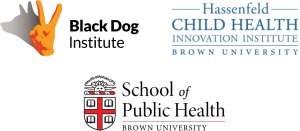Providence, Rhode Island
September 27, 2023
New designs, new problems, and potential solutions for targeted prevention
Recent research meta-analyses and small-scale prevention research trials demonstrate that prevention ‘works’ in reducing the incidence of depression and anxiety. However, when it comes to scaling up prevention efforts in schools, we have not seen expected effects. Positive outcomes are absent even for those with some symptoms at the onset, a finding in conflict with early intervention studies. These findings provoke the need to step back and take a broader perspective on prevention. Evidence has grown for the role of social, economic and political factors as determining mental health problems at a population level (National Academies of Sciences, Engineering, and Medicine, 2019). Broader trends suggest that targeted interventions may be better, that multi-component approaches might be more useful, and that interventions might be better if they are delivered by youth and co-designed.
In light of these findings, we examine two questions at this satellite meeting:
1. Why are larger scale school-based prevention trials not showing expected results?
2. If social determinants of health and broader societal change are the targets of new-generation prevention studies, what are the best designs, statistical methods and technologies that can be used to establish causality?
While the consortium is open to any topic or approach to prevention, the satellite meeting addresses the two questions noted above. The satellite meeting aims to produce a document that provides a framework and priorities for future targeted prevention research to assist funders, and thus has a policy focus.
All members of the Global Consortium are invited to attend the meeting.
We are seeking participation from those with experience in prevention in LMIC countries, early career researchers, participants, clinicians, teachers, who has experience of a (youth) prevention program. A limited number of small fellowships may be offered to diversify perspectives from LMIC, and young people.
Helen Christensen, PhD and Tracy Gladstone, PhD
Convenors of the Satellite Conference

